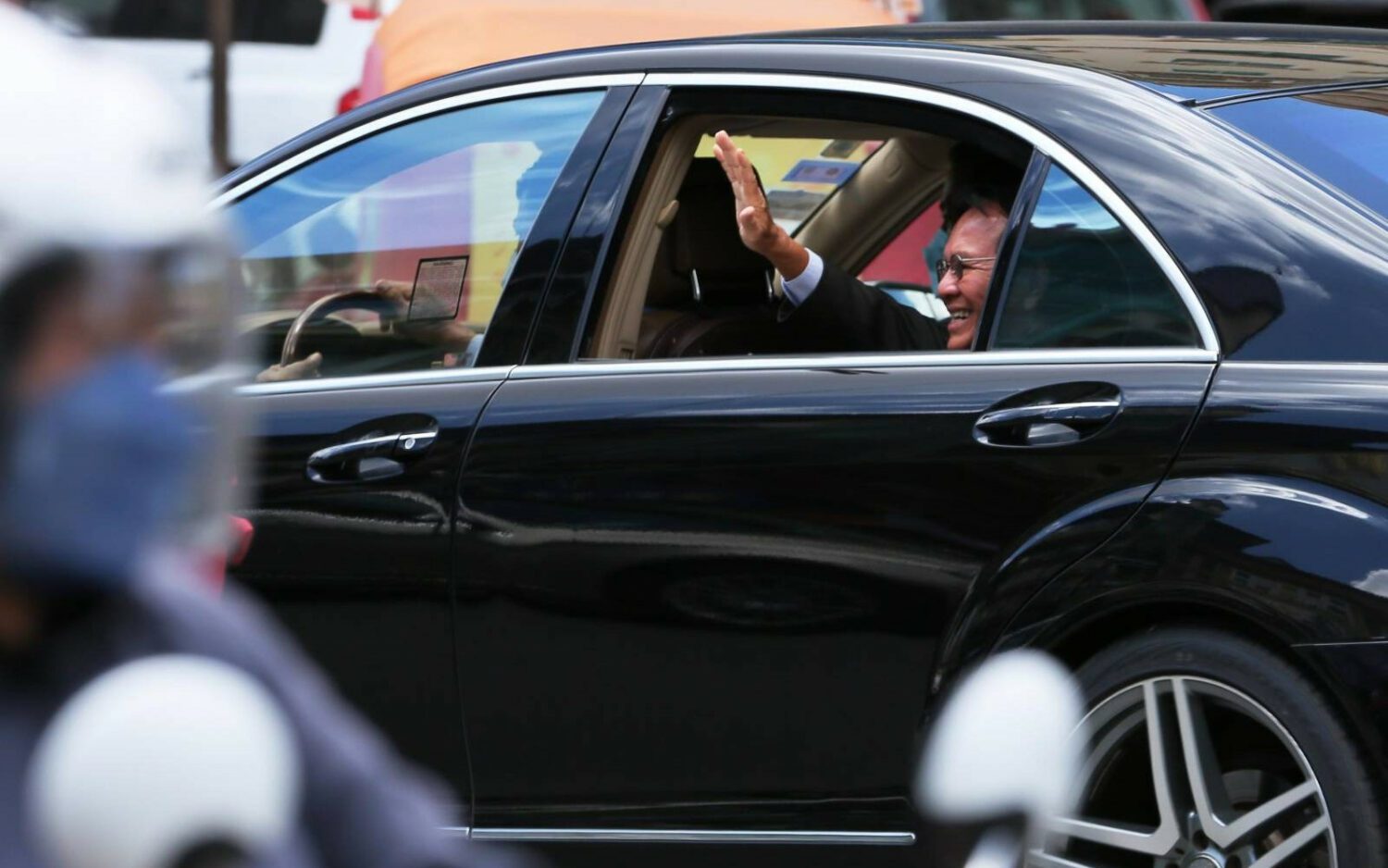The trial against opposition leader Kem Sokha tried to link him to an alleged color revolution attempt in 2013 when party colleagues and supporters held lotuses at public demonstrations, and questioned him over the Taiwanese ruling party’s visit to his CNRP that year.
In the 57th hearing of his protracted treason trial, Sokha defended himself against accusations of trying to foment revolution in the mold of overseas protests that toppled dictators, largely saying that he wasn’t involved, couldn’t remember or didn’t know.
Color revolution typically refers to nonviolent, mass demonstrations that have toppled authoritarian governments abroad, and which China continues to characterize as U.S.-backed plots — much like the allegations against Sokha.
Sokha was also questioned about his links to Pa Nguon Teang, the director-in-exile of the Cambodian Center for Independent Media, which is VOD’s parent organization.
The Phnom Penh Municipal Court on Wednesday saw images of CNRP colleagues such as Mu Sochua and Tioulong Saumura holding lotuses, and of activists and supporters leaving the flowers at barricades set up by police.
Judge Seng Leang asked Sokha if he had heard the word “lotus revolution,” and what was behind it.
Sokha said he had heard of it, but didn’t know its origins or details, and said the court should ask Sochua why she was holding a flower because he didn’t know that either.
Judge Leang described Sokha and the lotus-holding protesters as aiming to follow the example of Egypt — where 2011 mass protests, labeled a lotus revolution, ousted President Hosni Mubarak.
Sokha said the meaning of lotuses was different in Cambodia, and repeated a common refrain during his trial that the CNRP only wanted to compete in elections.
“I always go to the pagoda with a lotus. Holding a lotus is not wrong. The meaning of the lotus is nonviolence,” Sokha said.
The court also heard about the Taiwanese ruling party — labeled “extremist” by government-aligned Fresh News — visiting the CNRP headquarters in 2013. Sokha said he didn’t remember this clearly.
The trial then debated 2016’s civil society “Black Monday” campaign, possibly moving on the court’s weeks of questioning about the 2013 national election and the months of protests that followed.
In 2016, accusations of adultery against Sokha turned into an anti-terrorism and anti-corruption investigation, and five civil society members were jailed for alleged bribery for aiding Sokha’s lover. Police also attempted to jail Sokha, but he holed up in party headquarters surrounded by supporters for months to evade arrest.
Civil society activists at the time attempted a weekly social media campaign to wear black on Mondays to call for the release of the jailed “Adhoc 5.” Though the campaign remained small, Sokha was questioned about his links to the purported supporters of the campaign, including CCIM’s Nguon Teang.
“Have you ever heard of Black Monday? Why make Black Monday? Do you know Pa Nguon Teang? Ee Sarom, president of STT? Who is involved in the Black Monday campaign? Sam Rainsy called on Facebook for people to join the Black Monday campaign,” judge Vannak asked.
Sokha said he used to work with Nguon Teang, but he did not have much to do with the land rights work of Sarom. He also argued that then-CNRP president Rainsy’s appeal was personal and did not involve Sokha or the CNRP.
Correction: An earlier version of this article misnamed a judge in the case.












